When it comes to international trade, understanding the intricacies of shipping logistics is crucial for success. Door-to-door shipping from China to Zambia offers a seamless solution for businesses and individuals looking to import goods without the hassle of managing complex logistics. This comprehensive guide delves into the various shipping methods available, the costs associated with different options, the customs clearance process, and essential tips for ensuring a smooth shipping experience. Whether you’re a seasoned importer or new to the world of international trade, this guide equips you with the knowledge needed to navigate the complexities of door-to-door shipping effectively.
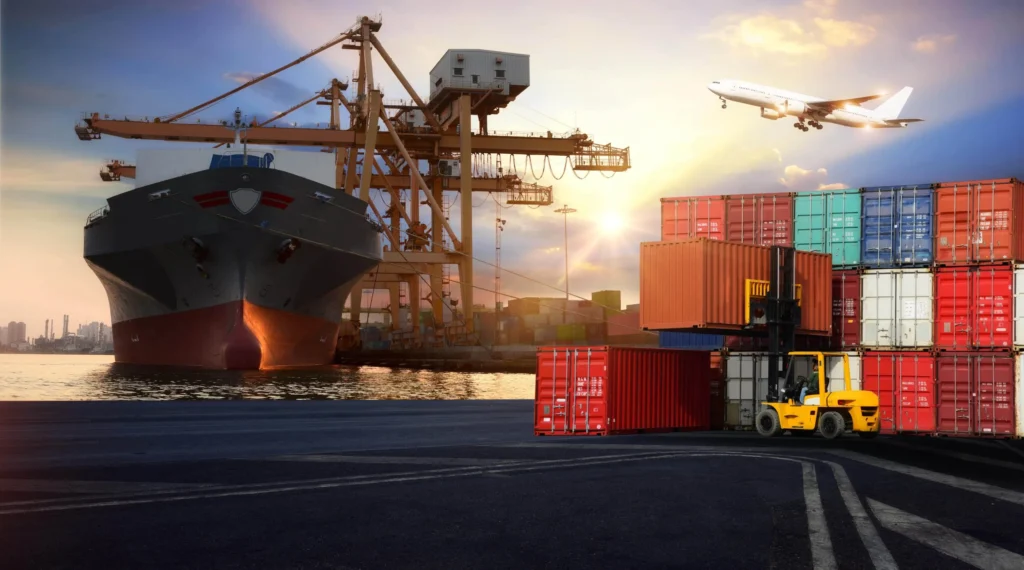
Understanding Door-to-Door Shipping
Door-to-door shipping is a comprehensive logistics service that entails the transportation of goods directly from the seller’s location to the buyer’s specified address, without the need for the buyer to handle any part of the shipping process. This service is particularly beneficial for businesses and individuals involved in international trade, as it simplifies complex logistics and reduces the burden on the customer.
This shipping method typically covers several key stages, including:
- Pick-up: The freight forwarder collects the goods from the seller’s facility.
- Transportation: The goods are then transported via the chosen shipping method – whether by air, sea, or road.
- Customs Clearance: The freight forwarder manages all necessary documentation and procedures for international shipping, including customs clearance.
- Final Delivery: The goods are delivered directly to the buyer’s designated address.
Overall, door-to-door shipping encapsulates the entire journey of the goods, providing a seamless experience for the customer.
Why Choose Door-to-Door Shipping?
Opting for door-to-door shipping offers numerous advantages, especially for those importing goods from China. Key benefits include:
-
Convenience: Customers do not need to deal with the intricacies of logistics, customs, or transportation. This reduces stress and saves valuable time.
-
Cost-Effectiveness: Although door-to-door services might appear more expensive at a glance, they often prove to be more economical in the long run by reducing hidden costs associated with logistics management, storage, and delays.
-
Time Efficiency: By utilizing professional freight services, goods are often transported faster than conventional methods, which can be critical for businesses that require timely delivery.
-
Risk Management: Professional logistics providers, such as Dantful International Logistics, offer various insurance services to protect shipments against loss or damage, ensuring peace of mind.
-
Enhanced Tracking: Many shipping companies provide advanced tracking systems that allow customers to monitor their shipments in real-time, adding an extra layer of transparency to the shipping process.
Shipping Methods from China to Zambia
When it comes to shipping goods from China to Zambia, various methods are available, each with distinct advantages. Understanding these options can help businesses and individuals select the most suitable method for their needs.
Express Shipping Door to Door
Express shipping is a premium service that guarantees rapid delivery of goods, typically within a few days. This method is ideal for urgent shipments or high-value items, as it prioritizes speed and reliability. Key features of express shipping include:
- Fast Transit Times: Express services can deliver packages in as little as 1-3 business days, making it an excellent choice for urgent shipments.
- Full Tracking: Customers can receive real-time updates on the status of their shipment, including when it is out for delivery.
- Cost Considerations: While faster, express shipping generally incurs higher costs compared to traditional methods, which should be factored into the overall budget.
Leading companies in this sector, including Dantful, provide comprehensive express shipping solutions, ensuring that goods arrive promptly and securely at their destination.
Air Freight Door to Door
Air freight is another efficient shipping method for transporting goods from China to Zambia. This service involves shipping goods via cargo aircraft, offering a balance between speed and cost. Key attributes of air freight include:
- Speed: Air freight is significantly faster than sea freight, making it suitable for time-sensitive shipments.
- Reliability: Airlines generally have strict schedules, resulting in fewer delays compared to other methods.
- Accessibility: Air freight services are often available for a wide range of cargo types, including fragile items, electronics, and perishables.
However, air freight costs can be substantially higher than sea freight, so it is essential to evaluate the urgency and value of the goods when making a choice.
Sea Freight Door to Door
For larger or heavier shipments, sea freight remains the most economical option. This method involves transporting goods in shipping containers via ocean vessels. Key aspects of sea freight include:
- Cost-Effective: Sea freight is significantly cheaper than air freight, especially for bulk goods. This makes it a popular choice for businesses looking to minimize shipping costs.
- Capacity: Ships can accommodate large volumes of cargo, making it ideal for businesses with high shipping demands.
- Extended Transit Times: While economical, sea freight typically has longer transit times, ranging from several weeks to a few months, depending on the route and shipping schedules.
When choosing sea freight, it is crucial to account for the time required for customs clearance and potential delays at ports. Partnering with a reliable freight forwarder like Dantful Logistics can streamline this process and ensure a smooth delivery from origin to destination.
READ MORE:
- Shipping From China To Algeria
- Shipping From China To Angola
- Shipping From China To Morocco
- Shipping From China To Nigeria
- Shipping From China To Kenya
- Shipping From China To Tanzania
- Shipping From China To South Africa
Cost of Door-to-Door Shipping from China to Zambia
When considering door-to-door shipping from China to Zambia, understanding the associated costs is crucial for businesses and individuals alike. The total shipping cost can vary widely based on several factors, including the chosen shipping method, the nature of the goods, and additional services required.
Factors Affecting Shipping Costs
Several key factors can influence the overall cost of door-to-door shipping:
-
Shipping Method: Different methods, such as express shipping, air freight, and sea freight, come with varying costs. Generally, express and air freight are more expensive than sea freight due to the speed and convenience they offer.
-
Weight and Dimensions of Goods: Heavier and larger shipments typically incur higher costs, as freight companies charge based on weight or volume. Dimensional weight calculations might apply, particularly in air freight.
-
Distance and Routing: The distance between the shipping origin and destination can affect transportation costs. Additionally, the specific routes chosen by freight companies may influence pricing.
-
Customs Duties and Taxes: International shipments often incur customs duties and taxes, which can significantly add to the total cost. Understanding the customs regulations for Zambia is essential for budgeting.
-
Additional Services: Optional services such as insurance, packaging, handling fees, and warehousing can also contribute to the overall shipping costs.
Cost Comparison by Shipping Method
The table below provides a cost comparison for different shipping methods used for door-to-door shipping from China to Zambia. These costs are estimates and can vary based on the specific details of each shipment.
| Shipping Method | Estimated Cost Range (USD) | Average Transit Time | Best For |
|---|---|---|---|
| Express Shipping | $300 – $800 | 1-3 days | Urgent shipments |
| Air Freight | $200 – $600 | 5-10 days | Moderate urgency |
| Sea Freight | $100 – $300 | 20-45 days | Bulk shipments |
Choosing the appropriate shipping method involves weighing the urgency of your shipment against your budget constraints.
Shipping Times in Door-to-Door Shipping
Understanding the shipping times associated with door-to-door shipping is as vital as being aware of the costs. The delivery duration can significantly influence business operations and customer satisfaction.
Estimated Durations for Different Shipping Methods
The estimated delivery durations for various shipping methods are as follows:
| Shipping Method | Estimated Delivery Time |
|---|---|
| Express Shipping | 1-3 days |
| Air Freight | 5-10 days |
| Sea Freight | 20-45 days |
These durations are based on typical transit times and can vary due to external factors such as weather conditions and operational delays.
Factors That Can Affect Delivery Times
Several factors can impact the delivery times of door-to-door shipping:
-
Customs Clearance: Delays in customs processing can significantly affect delivery times, especially for international shipments. Proper documentation and compliance with local regulations can expedite this process.
-
Weather Conditions: Adverse weather can lead to transportation delays, particularly for air and sea freight. Seasonal variations may also affect shipping schedules.
-
Volume of Shipments: During peak seasons, such as holidays, the volume of shipments may increase, leading to potential delays in processing and transportation.
-
Destination Accessibility: Remote locations or areas with limited infrastructure might experience longer delivery times compared to urban centers.
-
Carrier Reliability: The reputation and efficiency of the chosen freight forwarder play a crucial role in the punctuality of delivery. Partnering with a reliable provider, such as Dantful International Logistics, can mitigate these risks and enhance the shipping experience.
By considering both costs and shipping times, businesses and individuals can make informed decisions regarding their logistics strategies when importing goods from China to Zambia. Dantful’s expertise in providing tailored logistics solutions ensures a streamlined and efficient shipping process, aiding in better planning and execution of international trade operations.
Customs Clearance and Duties
Navigating the customs clearance process is a critical step in the shipping journey, particularly for those importing goods from China to Zambia. Understanding the customs procedures and associated duties can prevent delays and unexpected costs.
Customs Procedures in Zambia
Customs procedures in Zambia are designed to ensure compliance with national regulations and international trade agreements. The key steps involved in customs clearance include:
- Documentation Preparation: Importers must prepare and submit various documents to the Zambia Revenue Authority (ZRA). Essential documents typically include:
- Bill of Lading (for sea freight) or Airway Bill (for air freight)
- Commercial Invoice detailing the value and description of the goods
- Packing List outlining the contents of the shipment
- Import Permit (if required for specific goods)
- Certificate of Origin (vital for determining preferential trade rates)
- Customs Declaration: Importers or their freight forwarders must file a customs declaration with the ZRA. This declaration provides information about the shipment and serves as a formal request for clearance.
- Assessment and Payment of Duties: Once the customs declaration is submitted, customs officials assess the shipment. The value and nature of the goods determine the applicable duties and taxes, which must be paid before the goods can be released.
- Inspection: Customs authorities may conduct physical inspections of the cargo to verify that the shipment aligns with the documentation provided. This step can occasionally lead to delays, especially if discrepancies are found.
- Release of Goods: Upon successful completion of all procedures, payment of duties, and any inspections, the goods are released and can be delivered to the final destination.
Navigating these procedures can be complex; therefore, partnering with a professional freight forwarder like Dantful International Logistics can streamline the customs clearance process and ensure compliance with local regulations.
Import Duties and Taxes
When importing goods into Zambia, understanding the applicable import duties and taxes is crucial for budgeting. The following are key components that affect the overall cost:
-
Import Duty: This is a tax levied on goods entering Zambia. The rate varies based on the type of goods imported, with different categories subject to different duty percentages. Generally, import duties may range from 0% to 40%.
-
Value Added Tax (VAT): Imports into Zambia are subject to a VAT of 16% on the total value of the goods plus the import duty. This tax is intended to generate revenue for the government and apply to nearly all goods.
-
Excise Duty: Certain goods, such as alcohol and tobacco, may incur additional excise duties. The rates depend on the specific product being imported.
-
Other Charges: Importers should also be aware of additional charges such as handling fees, port charges, and freight forwarding service fees, all of which can contribute to the overall cost of importing goods.
Understanding these duties and taxes enables importers to accurately assess the total cost of their shipments and avoid unexpected expenses.
Insurance and Tracking
Effective insurance and tracking systems are essential components of a successful shipping strategy. They provide security for shipments and transparency throughout the transportation process.
Cargo Insurance
Cargo insurance protects the importer against financial losses due to loss, damage, or theft of goods while in transit. Key aspects of cargo insurance include:
- Types of Coverage:
- All-Risk Coverage: This comprehensive option covers all potential risks unless explicitly excluded, making it the most beneficial for high-value or sensitive shipments.
- Named Perils Coverage: This more limited option covers only specific risks outlined in the policy. It may be suitable for lower-value shipments where comprehensive coverage is unnecessary.
- Determining Coverage Needs: Factors to consider when choosing coverage include the value of the goods, shipping method, and the nature of the items being transported. High-value electronics, for instance, may require more extensive coverage compared to less fragile items.
- Claim Process: In the unfortunate event of a loss or damage, having cargo insurance in place simplifies the claims process. Typically, the insured party must notify the insurance provider promptly and provide necessary documentation, including a claim form, proof of loss, and supporting evidence (photos, invoices, etc.).
Having cargo insurance is vital for safeguarding investments and ensuring peace of mind during the shipping process. Dantful offers tailored insurance services to meet your shipping needs, ensuring your goods are protected throughout their journey.
Tracking Your Shipment
Tracking technology has revolutionized the logistics industry, allowing importers to monitor their shipments in real-time. Key benefits of tracking include:
-
Real-Time Updates: Most shipping providers, including Dantful, offer tracking systems that provide real-time updates on the status and location of shipments. This enhances visibility and allows businesses to plan accordingly.
-
Alerts and Notifications: Many tracking systems allow users to set up alerts for important milestones, such as when the shipment is dispatched, in transit, or out for delivery. This ensures importers are informed of any changes or delays.
-
Improved Customer Communication: For businesses, being able to provide customers with accurate tracking information enhances the customer experience. It builds trust and allows customers to feel informed and confident about their purchases.
-
Resolving Issues Promptly: If any issues arise during transit, tracking systems enable quick identification of the problem, allowing for timely intervention and resolution.
The combination of comprehensive insurance coverage and efficient tracking systems helps ensure a smooth shipping experience and protects the investment made in goods. Dantful International Logistics is committed to providing reliable tracking services, ensuring that your shipments are monitored every step of the way.
Choosing the Right Shipping Partner
Selecting an appropriate shipping partner is crucial for ensuring that your logistics needs are met efficiently and effectively. A reliable freight forwarder can make a significant difference in the success of your shipments, particularly when importing goods from China to Zambia.
Evaluating Shipping Companies
When evaluating potential shipping companies, consider the following factors to ensure you choose the right partner for your logistics operations:
-
Experience and Expertise: Look for companies with a proven track record in international shipping, particularly to Zambia. Experienced freight forwarders are more likely to navigate complex customs regulations and logistics challenges smoothly.
-
Range of Services: Assess the range of services offered by the shipping company. A comprehensive provider should offer various shipping methods (such as express, air, and sea freight), customs clearance, insurance services, and warehouse services. This versatility ensures all your shipping needs can be met under one umbrella.
-
Reputation and Reviews: Research customer reviews and testimonials to gauge the company’s reputation. Positive feedback from previous clients can indicate reliability, while negative reviews can serve as red flags.
-
Technology and Tracking Capabilities: Ensure the shipping company utilizes modern technology for tracking shipments. A system that allows real-time updates enhances visibility and helps you stay informed about your goods’ status.
-
Pricing Structure: While cost should not be the sole determining factor, it is essential to understand the pricing structure of potential shipping partners. Look for transparency in pricing, and compare quotes to ensure you receive a competitive rate without hidden fees.
-
Customer Support: Quality customer service is vital in logistics. A responsive freight forwarder can assist you in addressing any questions or concerns that may arise during the shipping process.
Dantful Door-to-Door Service
Dantful International Logistics offers a comprehensive door-to-door shipping service that simplifies the logistics process for businesses and individuals importing goods from China to Zambia. Key features of Dantful’s service include:
-
Expertise in Customs Clearance: Dantful handles all customs documentation and procedures, ensuring compliance with Zambian regulations and minimizing the risk of delays.
-
Flexible Shipping Options: With various shipping methods available—express, air, and sea—Dantful can tailor the logistics solution to meet your specific needs, whether you prioritize speed, cost, or capacity.
-
Real-Time Tracking: Dantful provides advanced tracking tools, allowing you to monitor your shipment’s progress from pickup to final delivery. This transparency enhances your shipping experience and aids in planning.
-
Insurance Services: Dantful offers cargo insurance to protect your shipments from loss or damage, ensuring that your investments are safeguarded throughout their journey.
-
Dedicated Customer Support: Dantful’s team of logistics experts is available to assist you at every step, providing guidance and support to simplify the shipping process.
Dantful International Logistics Services:
- Dantful Ocean Freight Services
- Air Freight From China
- Amazon FBA Freight Forwarding
- WAREHOUSE Services
- One-Stop Customs Clearance Solution
- Cargo Insurance Services in China
- DDP Shipping Services By Dantful Logistics
- Out of Gauge Cargo Transportation Shipping Services
Tips for a Smooth Shipping Experience
To ensure a seamless shipping experience when importing goods from China to Zambia, consider implementing the following tips:
Pre-Shipment Planning
-
Understand Regulations: Familiarize yourself with Zambia’s import regulations, including customs duties, taxes, and any restrictions on specific goods. This knowledge is essential for avoiding potential delays and costs.
-
Choose the Right Shipping Method: Assess your shipping needs and select the most suitable method based on your timeline and budget. Consider factors such as urgency, volume, and type of goods.
-
Accurate Documentation: Ensure all necessary documentation is prepared accurately, including the commercial invoice, packing list, and any required permits. Incomplete or incorrect paperwork can lead to delays in customs clearance.
-
Communicate with Your Freight Forwarder: Engage with your chosen freight forwarder to discuss your shipping needs and address any questions or concerns. Open communication can help identify potential issues before they arise.
During Shipment
-
Monitor Tracking Updates: Utilize the tracking system provided by your freight forwarder to stay informed about your shipment’s status. Real-time updates can help you anticipate any potential delays.
-
Be Prepared for Customs Procedures: Ensure you understand customs clearance requirements and be ready to provide any additional documentation or information if requested by customs officials.
-
Stay in Touch with Your Shipping Partner: Maintain contact with your freight forwarder throughout the shipping process. They can provide valuable insights and support if any issues occur.
Post-Shipment
-
Inspect Your Shipment: Upon arrival, inspect your goods immediately to verify they are in good condition and match the order. If any issues arise, document them promptly for insurance claims.
-
Complete Any Required Customs Procedures: If additional customs procedures are needed after the shipment arrives, ensure that these are completed to avoid delays in receiving your goods.
-
Provide Feedback: Share your experience with your freight forwarder. Positive feedback helps them continue to improve their services, while constructive criticism can address areas for enhancement.
Employing these tips can significantly improve your shipping experience, ensuring a smooth and efficient process. By partnering with a reliable logistics provider like Dantful, you can navigate the complexities of international shipping with confidence and ease.
Frequently Asked Questions (FAQs)
1. What is Door-to-Door Shipping?
Door-to-door shipping is a logistics service that transports goods directly from the seller’s location to the buyer’s specified address, managing all aspects of the shipping process, including pick-up, transportation, customs clearance, and final delivery.
2. What are the advantages of choosing Door-to-Door Shipping?
The main advantages include:
- Convenience: Eliminates the need for the buyer to handle shipping complexities.
- Cost-Effectiveness: Reduces hidden costs associated with logistics management.
- Time Efficiency: Faster delivery compared to traditional methods.
- Risk Management: Insurance options protect against loss or damage.
- Enhanced Tracking: Real-time shipment monitoring provides transparency.
3. What shipping methods are available from China to Zambia?
The primary shipping methods include:
- Express Shipping: Fast delivery (1-3 days) for urgent shipments.
- Air Freight: Moderate shipping speed (5-10 days) at a higher cost.
- Sea Freight: Economical for bulk shipments but slower (20-45 days).
4. How are shipping costs determined?
Shipping costs are influenced by several factors, including:
- Shipping Method: Costs vary based on the method chosen (express, air, sea).
- Weight and Dimensions of Goods: Heavier and larger shipments cost more.
- Distance and Routing: Longer distances may result in higher costs.
- Customs Duties and Taxes: Import duties and taxes can significantly add to the total cost.
- Additional Services: Insurance, packaging, and warehousing fees also contribute to costs.
5. What are the customs procedures for importing to Zambia?
Key customs procedures include:
- Documentation Preparation: Essential documents like the Bill of Lading and Commercial Invoice must be prepared.
- Customs Declaration: Importers or freight forwarders must file a declaration with the ZRA.
- Assessment and Payment of Duties: Customs officials assess the shipment and collect applicable duties.
- Inspection: Cargo may be inspected to verify the documentation.
6. Why is cargo insurance important?
Cargo insurance protects importers against financial losses due to loss, damage, or theft during transit. It provides peace of mind and facilitates the claims process in case of incidents.
7. How can I track my shipment?
Most freight forwarders, including Dantful International Logistics, provide tracking systems that offer real-time updates on shipment status, allowing importers to monitor their goods throughout the shipping process.
8. What should I consider when choosing a shipping partner?
When selecting a shipping partner, evaluate their:
- Experience and Expertise
- Range of Services
- Reputation and Customer Reviews
- Technology and Tracking Capabilities
- Pricing Structure
- Customer Support
9. What tips can improve my shipping experience?
To ensure a smooth shipping experience:
- Pre-ship: Understand regulations, choose the right method, and prepare accurate documentation.
- During shipment: Monitor tracking updates and communicate with your freight forwarder.
- Post-shipment: Inspect your shipment and provide feedback on your experience.

Young Chiu is a seasoned logistics expert with over 15 years of experience in international freight forwarding and supply chain management. As CEO of Dantful International Logistics, Young is dedicated to providing valuable insights and practical advice to businesses navigating the complexities of global shipping.

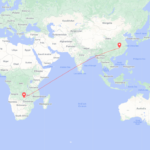









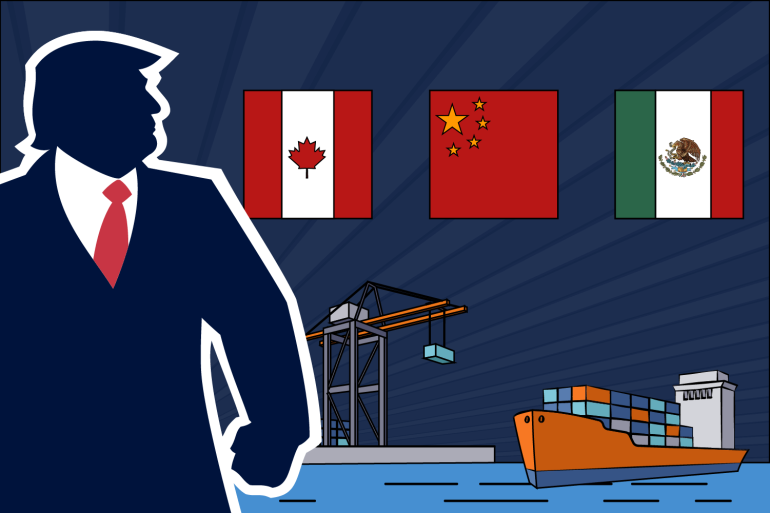
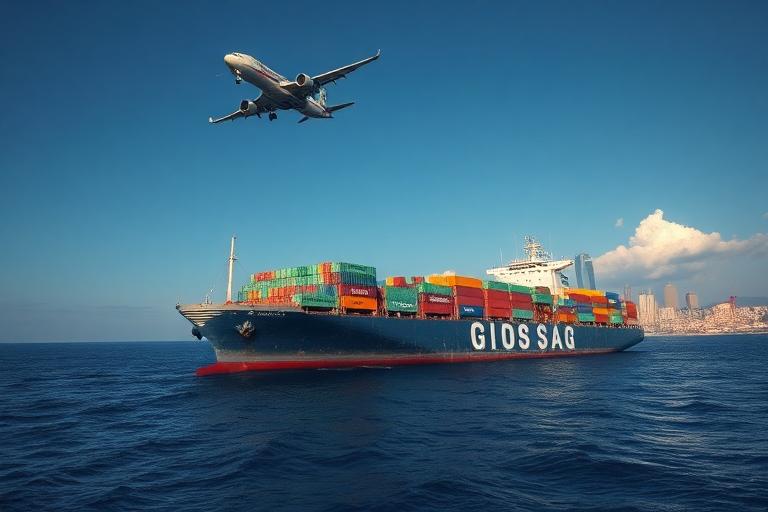
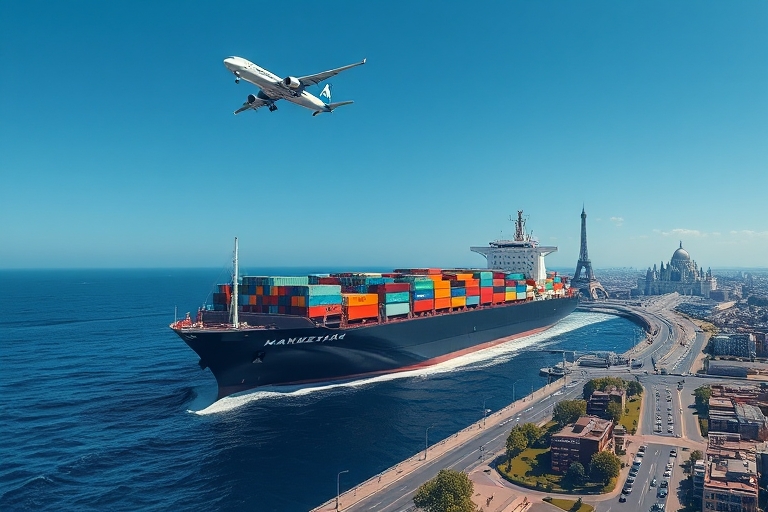

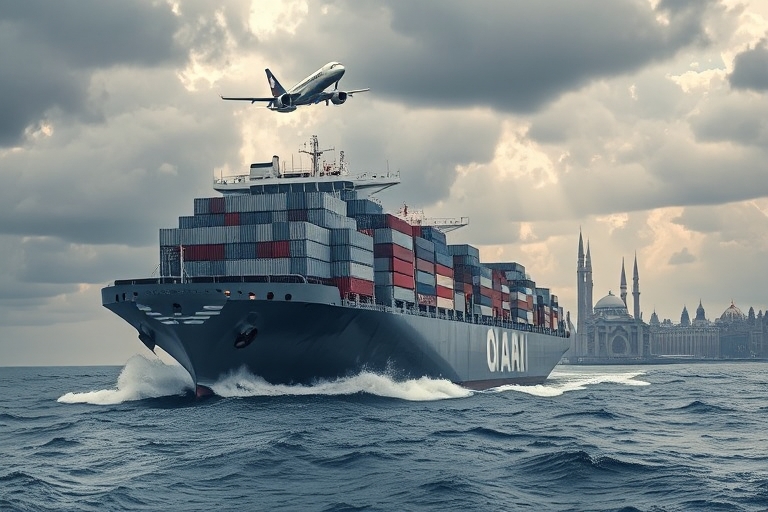





 Afrikaans
Afrikaans Shqip
Shqip አማርኛ
አማርኛ العربية
العربية Հայերեն
Հայերեն Azərbaycan dili
Azərbaycan dili Euskara
Euskara Беларуская мова
Беларуская мова বাংলা
বাংলা Bosanski
Bosanski Български
Български Català
Català Cebuano
Cebuano Chichewa
Chichewa 简体中文
简体中文 繁體中文
繁體中文 Corsu
Corsu Hrvatski
Hrvatski Čeština
Čeština Dansk
Dansk Nederlands
Nederlands English
English Esperanto
Esperanto Eesti
Eesti Filipino
Filipino Suomi
Suomi Français
Français Galego
Galego ქართული
ქართული Deutsch
Deutsch Ελληνικά
Ελληνικά Kreyol ayisyen
Kreyol ayisyen Harshen Hausa
Harshen Hausa Ōlelo Hawaiʻi
Ōlelo Hawaiʻi עִבְרִית
עִבְרִית हिन्दी
हिन्दी Hmong
Hmong Magyar
Magyar Íslenska
Íslenska Igbo
Igbo Bahasa Indonesia
Bahasa Indonesia Gaeilge
Gaeilge Italiano
Italiano 日本語
日本語 Basa Jawa
Basa Jawa ಕನ್ನಡ
ಕನ್ನಡ Қазақ тілі
Қазақ тілі ភាសាខ្មែរ
ភាសាខ្មែរ 한국어
한국어 كوردی
كوردی Кыргызча
Кыргызча ພາສາລາວ
ພາສາລາວ Latin
Latin Latviešu valoda
Latviešu valoda Lietuvių kalba
Lietuvių kalba Lëtzebuergesch
Lëtzebuergesch Македонски јазик
Македонски јазик Malagasy
Malagasy Bahasa Melayu
Bahasa Melayu മലയാളം
മലയാളം Maltese
Maltese Te Reo Māori
Te Reo Māori मराठी
मराठी Монгол
Монгол ဗမာစာ
ဗမာစာ नेपाली
नेपाली Norsk bokmål
Norsk bokmål پښتو
پښتو فارسی
فارسی Polski
Polski Português
Português ਪੰਜਾਬੀ
ਪੰਜਾਬੀ Română
Română Русский
Русский Samoan
Samoan Gàidhlig
Gàidhlig Српски језик
Српски језик Sesotho
Sesotho Shona
Shona سنڌي
سنڌي සිංහල
සිංහල Slovenčina
Slovenčina Slovenščina
Slovenščina Afsoomaali
Afsoomaali Español
Español Basa Sunda
Basa Sunda Kiswahili
Kiswahili Svenska
Svenska Тоҷикӣ
Тоҷикӣ தமிழ்
தமிழ் తెలుగు
తెలుగు ไทย
ไทย Türkçe
Türkçe Українська
Українська اردو
اردو O‘zbekcha
O‘zbekcha Tiếng Việt
Tiếng Việt Cymraeg
Cymraeg יידיש
יידיש Yorùbá
Yorùbá Zulu
Zulu